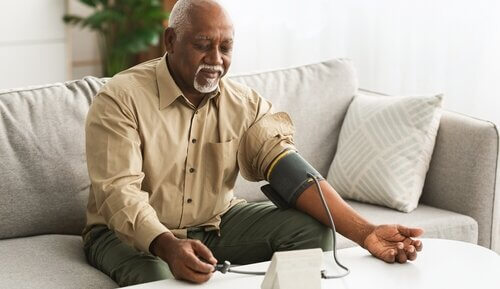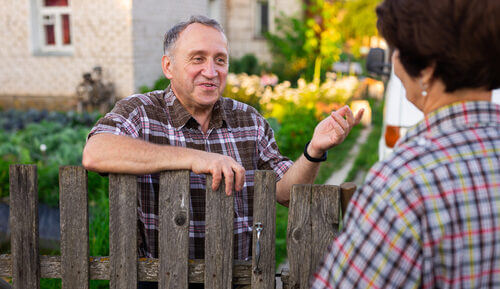
Page contents
Every five minutes, somebody in the UK has a stroke. This is according to The Stroke Association, which have also revealed in latest research that more than half of Britons aren’t aware that strokes are the fourth biggest killer in the UK, after dementia, heart disease and respiratory illnesses.
The Stroke Association found that death rates from strokes have halved in the last three decades thanks, in part, to life saving research.
That said, funding for research is still low compared to that for cancer; 1.2% of research budgets is spent on stroke research, and 14.8% on cancer. This is not proportionate to the number of people affected – 1.3 million people in the UK are living with the effects of a stroke while 2.5 million are living with cancer.
Juliet Bouverie, Chief Executive of the Stroke Association, said: “Despite stroke still being the fourth biggest killer in the UK, research has helped to more than halve the rate of deaths from stroke over the last three decades. It’s absolutely crucial that we continue this progress, but we can’t do this without vital funding. Far less is spent ‘per survivor’ on research into stroke than on research into any other health condition.”
What is a stroke?
A stroke is a serious condition of the brain that needs urgent medical treatment. It can cause brain damage or even be fatal if not treated quickly.
It happens when the blood supply to part of the brain is restricted or cut off completely. This is usually because of a blood clot but can also be due to a blood vessel bursting.
When the blood is cut off, oxygen cannot get to the part of the brain that the blood supply was feeding, killing affected brain cells.
There will be clear signs that somebody is having, or has had, a stroke. If you even suspect somebody might be having a stroke, you must call 999 immediately.
If the blood supply is only temporarily cut off, a person can have a ‘mini-stroke’, properly called a transient ischaemic attack. The person may only show symptoms for a few minutes or hours then seemingly recover; however, a mini-stroke still requires urgent medical attention.
What are the signs and symptoms of a stroke?
The easy-to-remember message advised by the NHS and the Stroke Association is FAST. If you see someone showing any of these symptoms, they may be having a stroke and you should call 999 quickly.
Face – Has their face (especially eye or mouth) drooped on one side? Can they smile?
Arm – Can they lift both arms and hold them up? Has one of their arms gone numb?
Speech – Can they speak? Is their speech slurred or unclear?
Time to call 999 – Quickly
Other signs of stroke include:
- Confusion and difficulty understanding what you’re saying
- Trouble with coordination and balance
- Dimmed or lost vision in one or both eyes
- Severe headache
What are the effects of a stroke?
A stroke can cause long-term health problems, both mental and physical. Two thirds of stroke survivors are left with some sort of disability and 50% rely on support for everyday activities.
Some long-term effects of a stroke can include:
- Loss of mobility or the use of one or more limbs
- Seizures and epilepsy
- Difficulty with speech, language and communication (aphasia)
- Difficulty swallowing (dysphagia)
- Problems with continence
- Hearing and vision problems
- Vascular dementia
- Depression and anxiety
- Difficulty with processing and remembering information
- Change in personality
- Fatigue, both mental and physical
- Persistent pain and headaches
Everybody’s experiences after a stroke are different. Some after-effects of a stroke can stay with a person for the rest of their life, while others get better with treatment and time.
Juliet Bouverie said: “While it changes lives in an instant, the brain can adapt and rebuild after stroke.”
Which age group is affected by strokes?
Strokes can happen to people of any age, even children. They are most common in people over the age of 70, but they are becoming increasingly prevalent in middle age.
In 2018 it was found the 38% of first-time strokes were happening to people aged between 40 and 69, and the average age for a first stroke was falling.
Case study: Young personal trainer who had a stroke
Glen Eastick was just 33 when he had a stroke.
Preparing his lunch one day in July 2020, he started noticing that something was amiss. “I briefly lost the use of my arm for about ten seconds and dribbled a bit but then continued making lunch,” said Glen.
“Then when I went into my next online session I realised I couldn’t talk. Nothing was coming out except the odd word. My client was saying are you ok?
“My girlfriend Bex was out on a walk with our six-week-old baby Evie and as soon as she came back she realised something was wrong as I was struggling to talk. She called the ambulance and I was rushed into hospital.”
Glen was taken to Queen Alexandra Hospital in Portsmouth, where he was treated by stroke speciality doctor James Beckett, who just so happened to be one of his personal fitness clients. There it was confirmed that he had had a stroke caused by a blood clot. This was dissolved and it was later found that he had a PFO ‘hole in the heart’ which had allowed blood clots to travel to his brain. This hole was closed by surgeons at John Radcliffe Hospital in Oxford the following year.
Glen has made a good recovery and credits Bex’s quick thinking, the skilled hospital staff and his own determination. He is now backing the Stroke Association’s call for more funding into stroke research.
What treatment is there for strokes?
A stroke needs to be treated fast to stop any more brain cells dying.
Immediate treatments include:
- Thrombolysis – A medicine to dissolve blood clots
- Thrombectomy – A procedure whereby a device is inserted into an artery to remove a blood clot
- Surgery – To remove blood clots, repair blood vessels or remove excess fluid from the brain
There are also various medications that reduce the risk of having a second stroke, such as anticoagulants to thin the blood and reduce the chance of another clot.
After a stroke, a person may need extensive rehabilitation to support them to recover, particularly if they have acquired a disability as a result.
Treatments after a stroke can include:
- Physical therapy
- Occupational therapy
- Speech and language therapy
- Psychological support and counselling
Are strokes preventable?
While anybody of any age can have a stroke, certain illnesses and lifestyle factors can increase your risk of having one.
Medical conditions that increase risk of stroke:
- Diabetes
- High blood pressure
- High cholesterol
- Atrial fibrillation (irregular heartbeat)
Lifestyle factors that increase risk of stroke:
- Smoking
- A poor diet, heavy in processed, fatty, salty or sugary food and low in whole foods and fibre
- Lack of exercise
- Excessive alcohol
- Being overweight
Nobody is ever to blame for having a stroke but getting treatment for any of the above conditions and making some lifestyle changes can reduce your risk. These include:
- Quitting smoking
- Eating a healthy diet with plenty of vegetables and minimal salty, sugary or processed foods
- Exercising regularly
- Reducing or giving up alcohol
Helplines
Stroke Association
Website: Stroke UK
Helpline: 0303 3033 100
Email: helpline@stroke.org.uk
Headway
Website: Headway: The brain injury association
Helpline: 0808 800 2244
The Brain Charity
Website: The Brain Charity
Neurological helpline: 0800 008 6417
Say Aphasia
Website: Say Aphasia
Tel: 07796 143 118
NHS Diabetes Prevention Programme
Website: NHS Diabetes Prevention Programme
Tel: 0333 577 3010
Find your ideal care home
- Explore a wide range of care options and facilities
- Read independent ratings and reviews
- Connect directly with care homes to book a tour and discuss your needs


